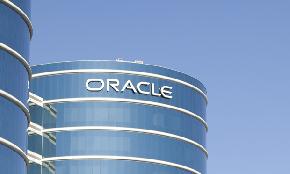DAVOS-KLOSTERS, SWITZERLAND-Add sustainability to the list of matters discussed by political and business leaders at the World Economic Forum, which announced that $515 billion, as well as government action and regulation is needed annually for “green” investments to avoid a disastrous carbon emissions level.
The announcement came in the report “Green Investing: Towards a Clean Energy Infrastructure” report, which was released at the conference. Written by the Forum, Geneva, and London-based New Energy Finance, the report discusses the move to clean energy infrastructure, the potential return of various technologies and their implementation. But it cannot happen by business means alone, the report added.
“As the cost of clean energy technologies decreases and policy support is put in place, the shape of the eventual energy system is emerging. But the investment demand is substantial,” the report said. “Despite the recent turmoil, the world’s financial markets are up to the financing challenge, but they will need continued action from the world’s policy-makers and leading corporations.”
The report identifies eight emerging, large-scale clean energy sectors that are expected to significantly contribute to creating a clean energy infrastructure of the future: onshore wind, offshore wind, solar photovoltaic, solar thermal electricity generation, municipal solar waste-to-energy, sugar-based ethanol, cellulosic and next generation biofuels, and geothermal power.
The importance of energy efficiency also “cannot be underestimated,” the report says, citing a McKinsey Global Institute study that estimates growth in energy demand could be cut in half by 2030 simply through such means. The greatest number of global efficiency opportunities lies in the industrial sector (49%), followed by residential (23%), transportation (15%) and commercial (13%).
“Buildings can be even made energy positive, meaning they produce more energy than they consume by using integrate solar PV (roof, facade, window), chromic glass, heat-exchangers/pumps, smart devices, and smarter architectural building designs,” the report says. “In the residential sector, nearly 80% of the investment would be directed at just one area–installing more efficient heating and cooling systems in existing and new homes.”
But governments must become involved on a variety of levels and for a long period of time, to ensure these new tools are used. “Policy-makers should enforce energy efficiency standards. Utilities and energy-intensive industries will respond to carbon prices and other price signals, but many individuals and businesses will simply not do so,” the report says. “As a result, there will always be a role for regulation to mandate certain changes in behaviour, such as appliance efficiency and standby power limits, corporate average fuel economy (CAFE) standards and building codes.”
Utilities that make a profit selling ever more amounts of gas or electricity will not be inclined to encourage their users to reduce energy demand, the report continued. Utility regulatory frameworks must be changed. It also suggested the Energy Service Co. model be revived, allowing third parties–including the utilities themselves–to underwrite the cost of improvements and share in the resulting savings.
The commitment to efficiency must be long-term: Denmark and Japan demonstrate that exploiting efficiency opportunities require sustained policy support over an extended period. And governments themselves also should purchase clean energy and require those they work with to do the same.
“With central, regional and local government accounting for 35% to 45% of economic activity in all of the world’s largest economies, public sector purchasing can be a powerful force,” the report says. “Clean energy use should be mandated in public procurement, which would create guaranteed markets for leading innovators in transport, heat and electricity.”
The move to investments has already begun: Clean energy investments increased from around $30 billion in 2004 to over $140 billion by 2008. That might be because it’s profitable. The report shows that despite the economic disasters of 2008, an index of the world’s 90 leading clean energy companies had a five-year compounded annualized return of almost 10%.
The report was mandated by last year’s World Economic Forum, the annual meeting of the Geneva-based not-for-profit organization that brings together business, political, intellectual and other leaders of society to work on projects “that improve people’s lives.” That included analyzing where to invest on green technology despite the current economy.
“It is crucial that the environmental challenges are not left aside when focusing on stabilizing the global financial system and reviving global economic growth,” the report says. “Waiting for economic recovery, rather than taking decisive action now, will make the future climate challenge far greater.”





 Copyright © 2024 ALM Global, LLC. All Rights Reserved.
Copyright © 2024 ALM Global, LLC. All Rights Reserved.











